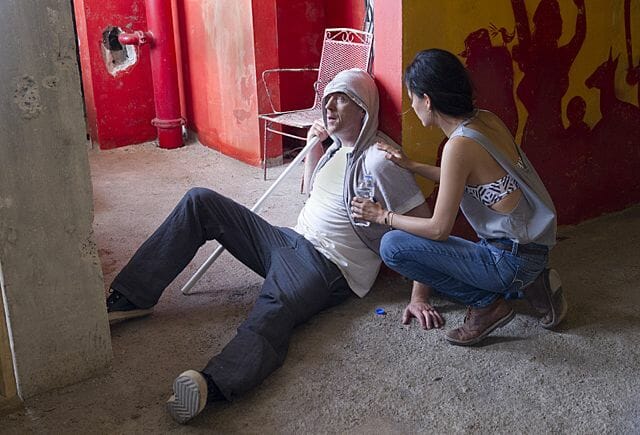Homeland: “Tower of David” (Episode 3.03)

Phew. That’s more like it.
After what could arguably be called one of the weakest episodes in Homeland’s three-season run on Showtime, this week’s episode turned back the clock and returned to form with a renewed focus on its more essential personnel. It’s a welcome reminder of the show’s potential.
Written by the late Henry Bromell and his son William—the elder Bromell was responsible for “The Good Soldier,” “Representative Brody,” and the excellent “Q&A” before his shocking death this past March—“Tower of David” brings back many of the elements that made this show special. The first, of course, is disgraced Marine Sergeant Nicholas Brody, who makes his needed return after two episodes at large.
Frankly, it couldn’t have come any sooner. This week served as a reminder that Brody, fundamentally, is the show’s most interesting character and the one who sets the show apart. The only hole bigger than the one the (maybe Brody) bomb left in Langley thus far has been the one left in the show’s plodding plotting, which had been at a standstill waiting for him to return.
He appears in an unlikely destination—Catia La Mar, Venezuela, where he’s in pretty bad shape, bleeding from a gunshot wound sustained after an ambush while secretly trying to cross a border. There’s a $10 million bounty on his head, but the group of gun-wielding men holding him don’t seem to be planning on collecting. For now, they just have to keep him alive until they (and the show) figure out what to do with him.
His unlikely surgeon uses a healthy dose of what seems to be an opiate—heroin, most likely—to subdue Brody for surgery. He awakes in a sunlit room in a burnt-out building in Caracas, with Muslim prayers playing faintly in the background. This feels set up to mirror his time in Iraq—he’s back wearing white, seeing children run past him, teaching a new language to a sympathetic listener. This time, instead of Issa (Abu Nazir’s son), it’s Esme, the alluring daughter of his captor. There’s a palpable tension between the two; with the addition of Fara last week, the lone bright spot in the episode, it’s nice to see more interesting characters being introduced as the world expands.
As the camera pulls away from his room, we see that he’s being housed in an unfinished, burned-out building in the center of the city called the Tower of David. Nominally inspired by a citadel in ancient Jerusalem, this one is in even worse shape than its namesake—an “abscess beyond healing” in the words of one of its denizens. It’s a fitting metaphor because of how much Homeland is about scars, really—Carrie’s frustration after failing to see 9/11 coming, Jessica and Dana’s inability to cope with Brody’s return, and Brody’s ravaged torso (and mind, for that matter). He, of course might be “beyond healing”—there’s simply no conceivable way he can be reintegrated into any kind of real world.
-

-

-

-

-

-

-

-

-

-

-

-

-

-

-

-

-

-

-

-

-

-

-

-

-

-

-

-

-

-

-

-

-

-

-

-

-

-

-

-








































